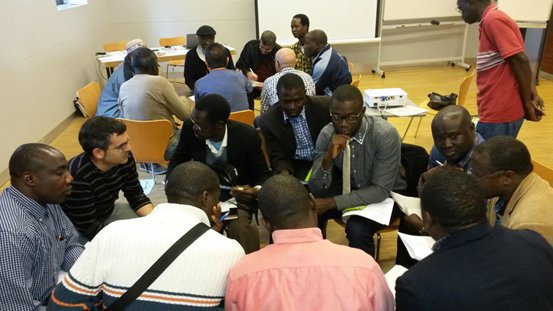Migration and development: an analysis of local dynamics

Throughout Europe, there is a long-standing tradition of allocating public funds to support processes of socio-economic and political development in the Global South. At the same time, immigration has led to both demographic diversity and the presence of migrant-led associations. A growing number of studies show that such migrant associations may seek to contribute to processes of development in their countries of origin. This research asks to what extent public official development aid (ODA) funding is extended to migrant-led development projects. Do migrant associations access host-country development funding to implement initiatives in their localities of origin? How can we explain why some governments are more likely to fund migrant associations and why some migrant groups access more funds than others?
We explore these wider issues through an analysis of the overall trends in migrant access to ODA among Catalan local governments which have dedicated a part of their annual budget to ODA activities since the 1980s. Catalonia is an interesting case because of high rates of immigration, an increase in ODA spending among local governments and a policy framework of co-development encouraging migrants to be development actors. We set up an original database with information from four consecutive comprehensive surveys of ODA practices of Catalan local governments between 1999 and 2008, each cohort representing more than 90% of the total Catalan population.
Although the overall number of migrant-led ODA projects is small and their share of funding only 3,2% in 2008, the trend is clear. The number of migrant associations accessing local ODA funding has tripled in 1999-2008 and the number of municipalities extending ODA funding to migrant associations has almost doubled from 10% to 20%.
Subsequently, we estimate a range of variables related both the size and diversity of municipalities and a range of institutional/political variables. Three findings stand out: First, there is a significant relationship between the transnational outlook (on-going engagement in global issues of inequality such as development cooperation) of the local government and its propensity to extend funding to migrant associations. Second, collaboration with migrants on ODA is not just reserved for larger urban settings as also a range of smaller municipalities extends their ODA budgets to fund the transnational activities of migrant associations. Third, the analysis indicates that those local governments where a right-wing party received most votes were less likely to channel ODA to migrants than those where the most voted party is the centre-left socialist party (PSC).
Regarding the patterns of inclusion and exclusion of different migrant collectives in official development assistance, the study provides an interesting opening for further research. When comparing the access of North African, Latin American and Sub-Saharan groups it is not the most numerous migrant collectives that take more funds. Curiously, only in the case of the numerically smallest migrant groups from Sub-Saharan Africa is there is a relationship between local concentration of migrants and local access to ODA funding.
Overall this study contributes to our understanding of how the growing presence of transnational migrants transform the local governance of development assistance in their countries of residence.
2.- PhD candidate in Politics, Policies and International Relations, UAB
References
Østergaard-Nielsen, E., and Acebillo-Baqué, M. (2016) Migration and the Local Transformation of Overseas Development Aid: an Analysis of Migrants' Access to ODA Funds in Catalonia. Popul. Space Place, 22: 367–381. doi: 10.1002/psp.1940.

